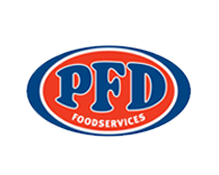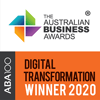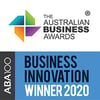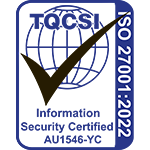Computer Vision
Computer Vision:Computer vision is the field of artificial intelligence that deals with teaching computers how to interpret and understand digital images. This includes tasks such as image recognition, object detection, and scene understanding.
Computer Vision is the most exciting field of technology today. It has the potential to revolutionise how humans interact with computers and machines, from facial recognition in security systems to self-driving cars. This revolutionary technology uses cameras and algorithms to recognise objects, understand scenes, and learn from its environment. In this article, we will explore what computer vision is and how it can be applied to our everyday lives.
Computer vision is a type of artificial intelligence that enables machines to see and understand the world around them just like a human does. It extracts meaningful information from images and videos by analysing patterns, shapes, colours, and textures. With the help of powerful algorithms, machines can process visual data quickly and accurately - even better than a human!
The applications of computer vision are endless; it can be used in healthcare for medical imaging analysis, security surveillance systems for facial recognition, autonomous vehicles for navigation, industrial automation for automated inspection processes. Computer vision has already made significant advances in every aspect of our lives - from health care to manufacturing - but it still has much more potential to make our lives easier in the future.
What Is Computer Vision Used For?
Computer vision is a field of computer science focused on understanding and extracting information from images. It is an important part of the development of the machine learning field, as it allows machines to learn more complex tasks such as object detection and character recognition.
One way that computer vision is used is through convolutional layers. Convolutional layers are a type of artificial neural network specifically designed to analyse image data. The convolutional layer works by applying a set of filters over each pixel in an image to determine what objects are present. This enables computers to accurately identify objects in an image without any prior knowledge or labelling.
Another use for computer vision is character recognition. Character recognition involves teaching machines how to recognise letters and words from images. This technology can be used for optical character recognition (OCR) applications, which allow machines to read text from documents or websites and convert it into a digital format. Additionally, character recognition can be used for automated handwriting analysis, which can help machines understand handwritten notes and documents with greater accuracy than humans alone.
Computer vision also has applications in object detection, which involves training algorithms to detect objects in images or videos with a high degree of accuracy. Object detection can be used for various tasks such as facial recognition, security surveillance, and autonomous navigation systems. By combining object detection with other machine learning techniques such as deep learning, computers can recognise more complex features in images and videos with greater precision than ever before.
What Is Computer Vision And Example?
Computer vision is a field of artificial intelligence that focuses on the development of algorithms and technology to enable computers to interpret and understand digital images. It enables machines to take in visual information from their environment, analyse it, and make decisions based on what they see. This technology has been used across various industries, such as healthcare, security, retail, robotics, and automotive.
At its core, computer vision relies on deep learning - a form of machine learning that uses algorithms to detect patterns in large amounts of data. By training neural networks on labelled data sets, machines are able to recognise objects in pictures with increasing accuracy. For example, facial recognition technology can be used for security purposes by comparing a picture of someone’s face with an existing database. Similarly, object recognition can be used for self-driving cars by helping them identify lanes and other vehicles around them.
Computer vision technology is becoming increasingly popular due to its ability to automate processes with greater accuracy than humans can achieve alone. With more data being collected every day from cameras and sensors in consumer devices and the Internet of Things (IoT), computer vision will continue to play an important role in our lives by enabling us to interact more efficiently with the world around us.
Is Computer Vision An AI?
Computer vision is a rapidly expanding field of technology which has seen tremendous advances in recent years. It is used to describe the process of using machine learning algorithms and artificial intelligence to enable computers to interpret visual data from cameras and other sources, such as photos or videos. While computer vision may be an important part of artificial intelligence (AI) projects, it is not AI itself.
At its core, computer vision involves using sophisticated neural networks to recognise patterns in images or videos that would otherwise be difficult for humans to see. The goal is to detect objects, features, and people in these images or videos and then use this information to make decisions or predictions. As such, computer vision can be used for facial recognition, object tracking, motion detection, and more — all without human intervention.
The potential applications of computer vision are vast, ranging from medical diagnostics to autonomous driving. It can also be used for security surveillance and even marketing purposes by analysing customer behaviours. As computer vision technology continues to evolve, more uses for this powerful tool will continue to emerge — making it an invaluable asset in the world of AI-driven technologies.
Is Computer Vision Same As CNN?
Computer vision is a field of Artificial Intelligence that deals with understanding the content of digital images and videos. It is often used to detect objects, recognise faces, and interpret scenes within images. But is it the same as Convolutional Neural Networks (CNNs) or other deep learning models?
CNNs are one type of deep learning model used for computer vision tasks. They are specifically designed for image recognition tasks and are made up of a series of layers that process information in order to understand an image. By using convolutional filters, these networks can identify patterns within the image and classify it based on the features they have identified. This allows them to recognise objects in an image, like a face or car.
However, CNNs are only one type of deep learning model used for computer vision tasks. While they are effective in recognising objects from an image, there are also other types of models such as Support Vector Machines and Generative Adversarial Networks that can be employed for different kinds of image understanding tasks. These models may be better suited for certain problems or datasets than CNNs.
Thus, while computer vision does involve using deep learning models such as CNNs to understand images, it is not limited to this type alone. A wide range of models can be applied depending on the task and dataset at hand, allowing computer vision algorithms to become increasingly more accurate and powerful over time.
Which Language Is Best For Computer Vision?
It is important to consider which language is best for computer vision when building a computer vision system. Different languages offer different tools to help process image data and create algorithms that are optimised for the task at hand. Neural networks, in particular, require a strong foundation of programming language tools to maximise their potential.
When looking for the best language to use for computer vision, the most important factor to consider is how well it can handle complex image data analysis. Some languages such as Python have libraries designed specifically for neural networks, allowing users to easily build and train models on large datasets. However, other languages such as Java also have powerful libraries that allow developers to quickly develop algorithms for computer vision tasks.
Finally, one should also consider the ease of use when deciding which language is best suited for computer vision tasks. Although some languages may have more robust libraries available, they may not be as intuitive and user-friendly as others. Thus, it is important to research each language's capabilities and find out which will provide the best user experience while still providing all of the necessary tools needed to create effective computer vision algorithms.
Conclusion
Computer vision has a wide range of applications in the modern world, from facial recognition to autonomous navigation. It is a branch of artificial intelligence that uses computers to analyse and interpret visual data. Computer vision can be used for tasks like object detection, image classification, and 3D reconstruction. Although computer vision is closely related to deep learning algorithms such as convolutional neural networks (CNNs), it is not necessarily an AI technology in itself.
The language used for computer vision projects can depend on the complexity of the task or the user's preferences. Popular languages for computer vision include Python, C/C++, MATLAB, and OpenCV. However, there are many other languages that can also be used depending on the project requirements.
Computer vision has become increasingly popular because of its potential to automate tedious tasks and increase efficiency in both commercial and industrial settings. With advances in machine learning techniques, computer vision applications continue to evolve with each passing year. As such, it is important to stay up-to-date on current technologies and trends in order to reap the full benefits of this powerful tool.
PREVIOUS NARROW AI GLOSSARY TERM
NEXT NARROW AI GLOSSARY TERM
Computer Vision Definition
Exact match keyword: Computer Vision N-Gram Classification: Computer Vision Applications, Computer Vision Algorithms, Computer Vision Technology Substring Matches: Vision, Computer Long-tail variations: "Computer Vision Solutions", "Computer Image Analysis" Category: Technology, Artificial Intelligence Search Intent: Research, Solutions, Purchase Keyword Associations: Machine Learning, Deep Learning, Image Processing Semantic Relevance: Machine Learning, Deep Learning, Image Processing Parent Category: Technology Subcategories: Machine Learning, Deep Learning, Image Processing Synonyms: Machine Learning, Deep Learning, Image Processing Similar Searches: Image Recognition, Object Detection , Pattern Recognition Geographic Relevance : Global Audience Demographics : Developers , Engineers , Students , Researchers Brand Mentions : Intel , Google , Microsoft Industry-specific data : Application Specifics , Performance Metrics Commonly used modifiers : "AI", "Automation", "Software" Topically relevant entities : Machine Learning , Deep Learning , Image Processing , Image Recognition Regression Teaching Objects Detection Pattern Recognition."Larry will be our digital expert that will enable our sales team and add that technological advantage that our competitors don't have."
Kerry Smith
CEO, PFD Foods
$1.6 billion in revenue 
"Lion is one of Australasia’s largest food and beverage companies, supplying various alcohol products to wholesalers and retailers, and running multiple and frequent trade promotions throughout the year. The creation of promotional plans is a complicated task that requires considerable expertise and effort, and is an area where improved decision-making has the potential to positively impact the sales growth of various Lion products and product categories. Given Complexica’s world-class prediction and optimisation capabilities, award-winning software applications, and significant customer base in the food and alcohol industry, we have selected Complexica as our vendor of choice for trade promotion optimisation."
Mark Powell
National Sales Director, Lion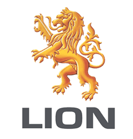
"At Liquor Barons we have an entrepreneurial mindset and are proud of being proactive rather than reactive in our approach to delivering the best possible customer service, which includes our premier liquor loyalty program and consumer-driven marketing. Given Complexica’s expertise in the Liquor industry, and significant customer base on both the retail and supplier side, we chose Complexica's Promotional Campaign Manager for digitalizing our spreadsheet-based approach for promotion planning, range management, and supplier portal access, which in turn will lift the sophistication of our key marketing processes."
Richard Verney
Marketing Manager
Liquor Barons

"Dulux is a leading marketer and manufacturer of some of Australia’s most recognised paint brands. The Dulux Retail sales team manage a diverse portfolio of products and the execution of our sales and marketing activity within both large, medium and small format home improvement retail stores. We consistently challenge ourselves to innovate and grow and to create greater value for our customers and the end consumer. Given the rise and application of Artificial Intelligence in recent times, we have partnered with Complexica to help us identify the right insight at the right time to improve our focus, decision making, execution, and value creation."
Jay Bedford
National Retail Sales Manager
Dulux

"Following a successful proof-of-concept earlier this year, we have selected Complexica as our vendor of choice for standardizing and optimising our promotional planning activities. Complexica’s Promotional Campaign Manager will provide us with a cloud-based platform for automating and optimising promotional planning for more than 2,700 stores, leading to improved decision-making, promotional effectiveness, and financial outcomes for our retail stores."
Rod Pritchard
Interim CEO, Metcash - Australian Liquor Marketers
$3.4 billion in revenue 
"After evaluating a number of software applications and vendors available on the market, we have decided to partner with Complexica for sales force optimisation and automation. We have found Complexica’s applications to be best suited for our extensive SKU range and large set of customers, being capable of generating recommendations and insights without burdening our sales staff with endless data analysis and interpretation.
Aemel Nordin
Managing Director, Polyaire
"DuluxGroup is pleased to expand its relationship with Complexica, a valued strategic partner and supplier to our business. Complexica’s software will enable DuluxGroup to reduce the amount of time required to generate usable insights, increase our campaign automation capability, personalise our communications based on core metrics, and close the loop on sales results to optimise ongoing digital marketing activity."
James Jones
Group Head of CRM, DuluxGroup
"Instead of hiring hundreds of data scientists to churn through endless sets of data to provide PFD with customer-specific insights and personalised recommendations, Larry, the Digital Analyst® will serve up the answers we need, when we need them, on a fully automated basis without the time and manual processes typically associated with complex analytical tasks.”
Richard Cohen
CIO, PFD Foods
$1.6 billion in revenue 
"As a global innovator in the wine industry, Pernod Ricard Winemakers is always seeking ways to gain efficiencies and best practices across our operational sites. Given the rise of Artificial Intelligence and big data analytics in recent times, we have engaged Complexica to explore how we can achieve a best-in-class wine supply chain using their cloud-based software applications. The engagement is focused on Australia & New Zealand, with a view to expand globally."
Brett McKinnon
Global Operations Director, Pernod Ricard Winemakers
"70% - 80% of what we do is about promotional activity, promotional pricing -- essentially what we take to the marketplace. This is one of the most comprehensive, most complex, one of the most difficult aspect of our business to get right. With Complexica, we will be best in class - there will not be anybody in the market that can perform this task more effectively or more efficiently than we can."
Doug Misener
CEO, Liquor Marketing Group
1,400+ retail stores 
"The key thing that makes such a difference in working with Complexica is their focus on delivering the business benefits and outcomes of the project."
Doug Misener
CEO, Liquor Marketing Group
1,400+ retail stores 
"Australia needs smart technology and people, and it has been a great experience for me to observe Complexica co-founders Zbigniew and Matt Michalewicz assemble great teams of people using their mathematical, logic, programming, and business skills to create world-beating products. They are leaders in taking our bright graduates and forging them into the businesses of the future."
Lewis Owens
Chairman of the Board, SA Water 
"Having known the team behind Complexica for some years ago now, I am struck by their ability to make the complex simple - to use data and all its possibilities for useful purpose. They bring real intelligence to AI and have an commercial approach to its application."
Andrew McEvoy
Managing Director, Fairfax Media - Digital 
"I have worked with the team at Complexica for a number of years and have found them professional, innovative and have appreciated their partnership approach to delivering solutions to complex problems."
Kelvin McGrath
CIO, Asciano 
“Working with Complexica to deliver Project Automate has been a true partnership from the initial stages of analysis of LMG’s existing processes and data handling, through scoping and development phase and onto delivery and process change adoption. The Complexica team have delivered considerable value at each stage and will continue to be a valued partner to LMG."
Gavin Saunders
CFO, Liquor Marketing Group 
“Complexica’s Order Management System and Larry, the Digital Analyst will provide more than 300 Bunzl account managers with real-time analytics and insights, to empower decision making and enhanced support. This will create more time for our teams to enable them to see more customers each day and provide the Bunzl personalised experience.”
Kim Hetherington
CEO, Bunzl Australasia 
"The team behind Complexica develops software products that are at the cutting edge of science and technology, always focused on the opportunities to deliver a decisive competitive edge to business. It has always been a great experience collaborating with Matthew, Zbigniew and Co."
Mike Lomman
GM Demand Chain, Roy Hill Iron Ore 
"The innovations that the Complexica team are capable of continue to amaze me. They look at problems from the client side and use a unique approach to collaborating with and deeply understanding their customers challenges. This uniquely differentiates what they bring to market and how they deliver value to customers."
John Ansley
CIO, Toll Group 
"Rather than building out an internal analytics team to investigate and analyse countless data sets, we have partnered with Complexica to provide our sales reps with the answers they need, when they need them, on a fully automated basis. We are excited about the benefits that Larry, the Digital Analyst will deliver to our business.”
Peter Caughey
CEO, Coventry Group 
“Complexica’s Order Management System and Larry, the Digital Analyst will provide more than 300 Bunzl account managers with real-time analytics and insights, to empower decision making and enhanced support. This will create more time for our teams to enable them to see more customers each day and provide the Bunzl personalised experience.”
Kim Hetherington
CEO, Bunzl Australasia 
"After an evaluation process and successful proof-of-concept in 2016, we have chosen to partner with Complexica to upgrade the technological capability of our in-field sales force. The next-generation Customer Opportunity Profiler provided by Complexica will serve as a key tool for sales staff to optimise their daily activities, personalise conversations and interactions with customers, and analyse data to generate actionable insights."
Stephen Mooney
Group Sales Capability Manager, DuluxGroup
$1.7 billion in revenue
"After evaluating a number of software systems available in the marketplace, we have ultimately selected Complexica as our vendor of choice for sales force automation and CRM. Given the large SKU range we carry and very long tail of customers we serve, Complexica’s applications are best suited to deal with this inherent complexity without burdening our staff with endless data entry."
Nick Carr
CEO, Haircaire Australia
Australia's largest distributor of haircare products
“Asahi Beverages is Australia’s largest brewer, supplying a leading portfolio to wholesalers and retailers, including some of Australia’s most iconic brands. Last year Asahi Beverages acquired Carlton & United Breweries, which is its Australian alcohol business division. To harness the strength of our expanded portfolio, we partner with our customers to run multiple and frequent trade promotions throughout the year, delivering long-term growth for both our business and theirs. Given the inherent complexity in optimising promotional plans and our continued focus on revenue and growth management, we have selected Complexica as our vendor of choice after a successful Proof-of-Concept of its world-class optimisation capabilities.”
Kellie Barnes
Group Chief Information Officer
Asahi Beverages
"Dulux is a leading marketer and manufacturer of some of Australia’s most recognised paint brands. The Dulux Retail sales team manage a diverse portfolio of products and the execution of our sales and marketing activity within both large, medium and small format home improvement retail stores. We consistently challenge ourselves to innovate and grow and to create greater value for our customers and the end consumer. Given the rise and application of Artificial Intelligence in recent times, we have partnered with Complexica to help us identify the right insight at the right time to improve our focus, decision making, execution, and value creation."
Jay Bedford
National Retail Sales Manager, DuluxGroup
"At Liquor Barons we have an entrepreneurial mindset and are proud of being proactive rather than reactive in our approach to delivering the best possible customer service, which includes our premier liquor loyalty program and consumer-driven marketing. Given Complexica’s expertise in the Liquor industry, and significant customer base on both the retail and supplier side, we chose Complexica's Promotional Campaign Manager for digitalizing our spreadsheet-based approach for promotion planning, range management, and supplier portal access, which in turn will lift the sophistication of our key marketing processes."
Richard Verney
Marketing Manager, Liquor Barons









